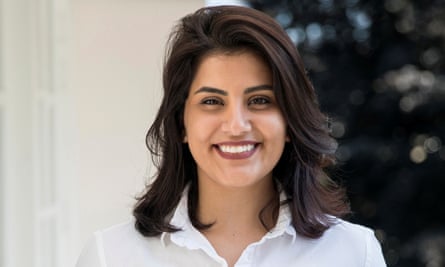Eleven female Saudi Arabian activists have appeared in court in Riyadh for the latest hearing in their trial on unspecified charges relating to their human rights work and contacts with foreign journalists and diplomats.
Reporters and foreign diplomats were barred from entering the courtroom and escorted from the building despite petitioning the authorities to attend the trial, which has drawn sharp criticism in the west.
The Saudi Arabian public prosecutor’s office previously announced that the group undertook “coordinated activity to undermine the security, stability and social peace of the kingdom”.
After the first trial session in March, Human Rights Watch said after reviewing the charge sheets for two of the detainees that the charges related to human rights work, including promoting women’s rights and calling for an end to Saudi Arabia’s male guardianship system.
Some of the charges fall under under an article of the kingdom’s cybercrime law stipulating jail sentences of up to five years, other rights groups said.
Among those arrested in a sweep that began in May 2018 were the rights campaigner Loujain al-Hathloul, the university professor Hatoon al-Fassi and the blogger Eman Al Nafjan, all of whom had participated in campaigns for the right of women to drive.

Rights groups and the women’s families say some of those detained in the crackdown were subjected to physical and psychological torture, including electric shocks, flogging and sexual abuse.
Three dozen countries, including all 28 EU members, Canada and Australia, have called on Riyadh to free the activists. The British foreign secretary, Jeremy Hunt, and the US secretary of state, Mike Pompeo, both raised the issue during recent visits to Riyadh.
A coalition of nine prominent Democratic senators, including Dianne Feinstein and Elizabeth Warren, wrote a public letter last week calling on King Salman to immediately and unconditionally release a number of prisoners held on “dubious charges related to their activism”, citing many of the women currently on trial.
It remains to be seen if Riyadh will bend to international pressure – with the women possibly receiving acquittals or pardons – or pursue harsh sentences in a case that has revealed the limits of Crown Prince Mohammed bin Salman’s promises to modernise Saudi Arabia.
The activists were detained weeks before a ban on women driving cars in the conservative kingdom was lifted last June under efforts to relax social rules and boost the economy.
Dozens of other activists, intellectuals and clerics have been arrested separately in the past two years in an apparent bid to stamp out possible opposition.
The crown prince has courted the west to support ambitious economic and social reforms, but his reputation was severely tarnished when Saudi agents killed the journalist Jamal Khashoggi last October at the kingdom’s Istanbul consulate, sparking an international furore.
Reuters contributed to this report
